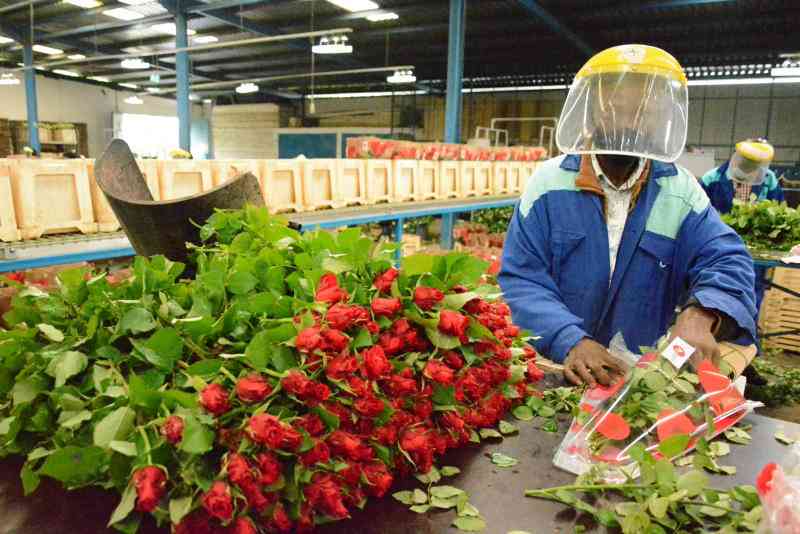Imported crops would also undergo inspection at the importers warehouse prior to distribution

Horticultural crops and flower dealers – growers, processors, and marketers, face a strict legal regime in efforts to regulate the sector. A new bill, sponsored by Nominated MP Sabina Chege, seeks to provide for the registration of all farmers – smallholders and plantations. If enacted, growers of horticultural crops would also be required to use inputs from a registered source.
The Horticultural Crops Authority Bill of 2024, states that a person shall not process, import or export horticultural products without a license. The dealers would also have to register with the county governments hosting their operations – free of charge.
Exporters and importers would be required to obtain licenses from the government to deal with various crops. Violators could be fined between one million and two million shillings or handed a three-year jail term.
“A person shall not process horticultural produce for local trade unless licensed by the respective county government,” the bill reads. The bill also seeks to introduce a horticultural crops levy on exports and imports. An export levy would be charged 1.5 per cent for any horticultural produce or product.
Canned, bottled, preserved, dehydrated produce or those delivered to operators for canning and processing factories would be excused. A four per cent import levy would also be charged on horticultural products imported as a finished product.
The proposed law also introduces an import levy charged at two per cent of the value of a horticultural product imported as fresh produce. “A person who fails to pay the horticultural crop levy imposed under this Act commits an offence,” the bill reads.
It provides that a county government may impose a cess for the development of horticultural crops and regulation of horticulture market infrastructure. “Horticultural produce destined for the export market shall not be charged cess by the county government.”
The bill seeks to elevate the Agriculture and Food Authority’s horticultural directorate to a full-fledged authority. The Horticultural Crops Authority is to license, and register grower associations, dealers and processors, and enforce compliance.
It will also register and maintain a database of marketing agents in the export market, ship handlers, clearing and forwarding agents, nursery operators, horticultural packing facilities, and horticulture associations.
Marketing agents, packing facilities, and nursery operators in the domestic market would be registered by county governments. Should MPs enact the law, it will be illegal for anyone to pack, process or store horticultural produce and products at unlicensed premises.
The authority and county governments would be tasked with the registration and licensing – and impose fees. The rules affect trading in apples, avocados, apricots, bananas and plantains, berries, breadfruit, citrus, grapes, guava, litchi, mango, melons, pawpaw, peach, pear, pineapple, plum, pomegranate, watermelons, medicinal plants, vegetables, herbs and spices, as well as flowers.
Those who don’t register would be fined one million shillings or be jailed for a maximum of three years or both. As per the proposed law, flower firms would be compelled to undertake to safeguard the social welfare of their workers.
Flower growers or dealers in flowers would also be required to commit to protecting the environment and conserving water. Imported crops would also undergo inspection at the importer’s warehouse before distribution.
The checks would ensure conformity with national, regional and international food safety and quality standards.
The bill states that horticulture produce would be branded with certification marks including geographical indications as a mark of origin. Only products that conform to quality standards would be permitted for sale in the local and export markets.
Crops would also have to be handled in a manner that prevents contamination, the proposed law states. Dealers and growers must ensure horticultural crops are not grown in dumping sites or sewerage and that contaminated water is not used for irrigation or washing produce. “A person who contravenes any provision of this section commits an offence,” the bill reads.
It says the authority would conduct inspections and surveillance to stem and arrest breaches of the required standards. No horticultural produce or product would be labelled as “organic” without certification from the authority. Dealers would also be required to put in place measures for tracing the origins of the crops. There would be impromptu inspections at collection centres, markets, and packing and storage facilities to ensure compliance.
The government will keep a register of marketing agents in the export market, ship handlers, clearing and forwarding agents, nursery operators and mother block operators for the export market, horticultural packing facilities for the export market and horticulture associations. Counties would be required to maintain a register of horticultural packing facilities in the domestic market.
Read more :https://www.the-star.co.ke/
